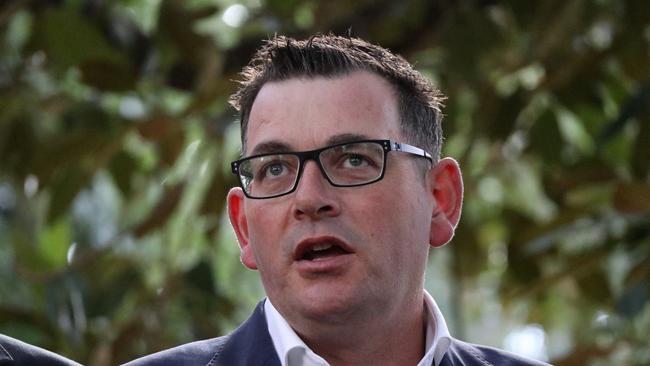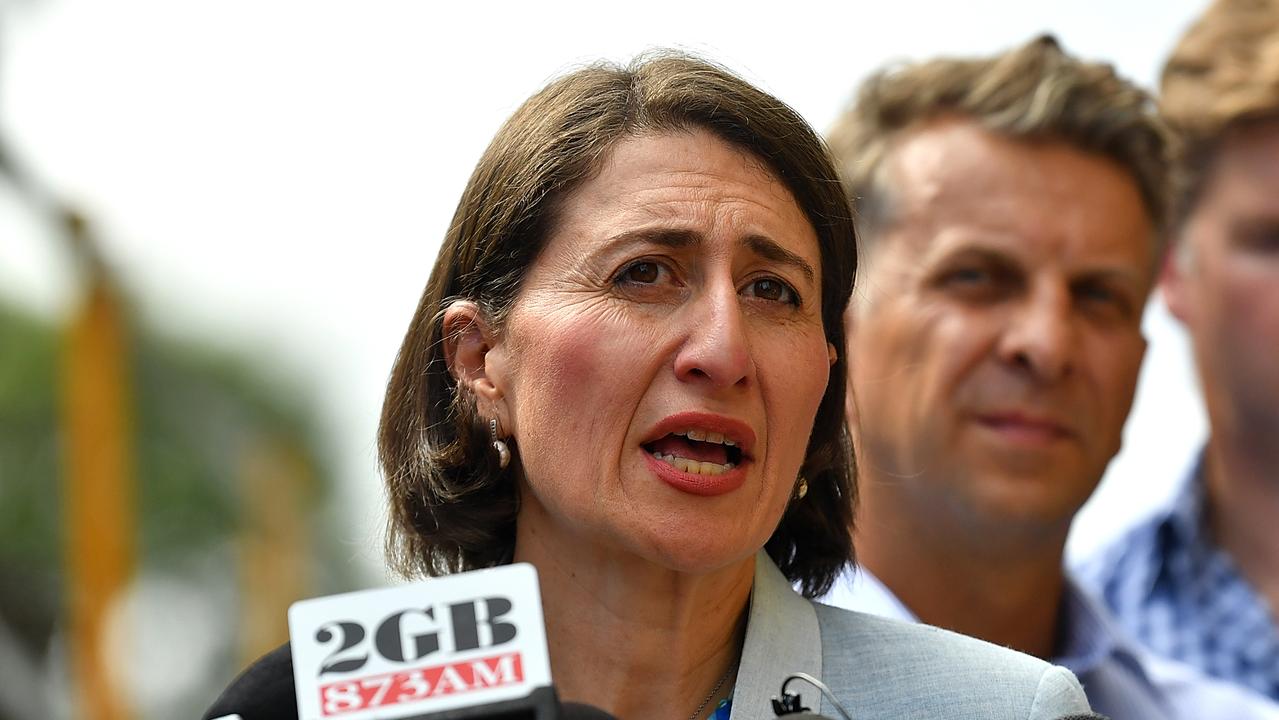Victorian Labor rorts put Daniel Andrews’ government on path to defeat

The old adage that oppositions don’t win elections but, rather, governments lose them has stood the test of time. The past decade is replete with examples of this.
Queensland provides some perfect examples of this truism. Anna Bligh’s government in its last term deserved to be defeated and, what’s more, deserved the electoral massacre it eventually faced.
The Bligh government obviously believed there was a money tree at the bottom of the garden because it became addicted to spending.
Debt rose to absurd levels and Campbell Newman, made leader of the conservatives while still the lord mayor of Brisbane and not a member of the parliament, was able to slide into government. Basically, all Newman had to do was turn up to be guaranteed the top job in Queensland.
The electoral rout was massive and Labor was left with only a handful of seats.
I was working for the Seven Network at the time and Annastacia Palaszczuk was in the studio preparing to go on the panel and put up some defence for Labor’s indefensible result. I advised her to go back to her electorate and forget about the panel.
I told her I thought there was a pretty good chance that greatness would be thrust upon her in the next few weeks and she should not in any way claim ownership of the defeat. Amazingly, she was never daunted by the enormous task set for her and always regarded victory as still possible. Underestimating her was a catastrophic mistake by Newman and the Liberal National Party.
Newman very early on demonstrated he was an ideological zealot. He gave Pete Costello the job of auditing the state’s finances thinking this would grant him sufficient cover to cut spending to the bone.
What followed was a case study on how to lose government. The cuts Newman then made were vicious, mean spirited and far reaching — they reached far enough into the hearts and minds of Queenslanders that they threw him out. You can’t take nurses out of hospitals or cut back on staff in every frontline service and think there will not be electoral payback at the end.
I spoke to a couple of hundred small business people in Hervey Bay a year before that election. In the heartland of LNP support, the hostility towards Newman was palpable. I knew then there would be an almighty swing and that Labor would go close to victory. Had I known that God was voting Labor I’d have been more confident of the historic win.
The collapse of the Keneally government in NSW in 2011, following 16 years of Labor in power, was like watching a train wreck in slow motion. After the departure of Bob Carr, Labor turned to Morris Iemma, whose first few years worked really well.
Hardly anyone can remember the name of the opposition leader he defeated in his first election campaign. His name was Peter Debnam and I thought Iemma’s majority should be sufficient for another term at least. A year of bitter infighting about privatising some of the electricity industry did Iemma great harm. In politics it is never smart to fight battles you can’t win.
Within two years Iemma had lost support of his caucus and it was considered by them that a new leader would do better. How wrong they were. Nathan Rees lasted five minutes before his inexperience became too apparent.
In a move I can describe only as misguided, the caucus opted for Kristina Keneally, who was less experienced than Rees. With all the best will in the world, she could never rescue a tired, fractured and largely untalented party. Her task was forlorn at best, hopeless at worst. All Liberal leader Barry O’Farrell had to do was stay mute and not embarrass himself.
He had too much ammunition in the locker and needed to use only some of it.
The South Australia result is a little different. There, it seemed that Jay Weatherill spent the last two years of his term trying to lose the election. The only hope he had was in forging some sort of alliance with Nick Xenophon if SA-Best could win a half-dozen seats.
In what can be described only as a brilliant tactical manoeuvre, he spent the last 10 days ripping into Xenophon on a daily, then almost hourly basis.
This act of genius ended Xenophon’s parliamentary aspirations just as surely as it wiped out Weatherill’s government. The Liberal opposition under the unimpressive Steven Marshall did practically nothing to achieve its much-undeserved victory.
What is happening in Victoria now gives another undeserving opposition an opportunity I did not see coming.
The apology from Premier Daniel Andrews for Labor MPs rorting office work entitlements to the tune of almost $400,000 seems a little underwhelming. The principle that government funds should never be used for party political purposes is well established, yet there seem to be continual attempts to game the system.
NSW MPs have been struck out for similar offences, but in Victoria there have been too many slip-ups. Victorians broke new ground when we were all able to read about a minister who used his chauffeur-driven government vehicle to transport his dogs to his country property, or senior MPs caught lying about where they really lived to fiddle travel allowances.
How is it that 21 MPs on the government side failed to heed these warnings?
I note that neither the Premier nor his Treasurer, Tim Pallas, took advantage of this avenue for rorting but I am dumbfounded as to why so many did.
Labor has paid all of the ill-gotten gains back but I wonder if it should all end here.
I have written in praise of Andrews often and up until this furore I expected him to win yet another term. Andrews has a reputation for integrity so it is regrettable that so much effort was put in to delay the Victorian Ombudsman from even starting her investigation.
If this issue is not dealt with properly it could spell the beginning of another government losing the plot.





To join the conversation, please log in. Don't have an account? Register
Join the conversation, you are commenting as Logout